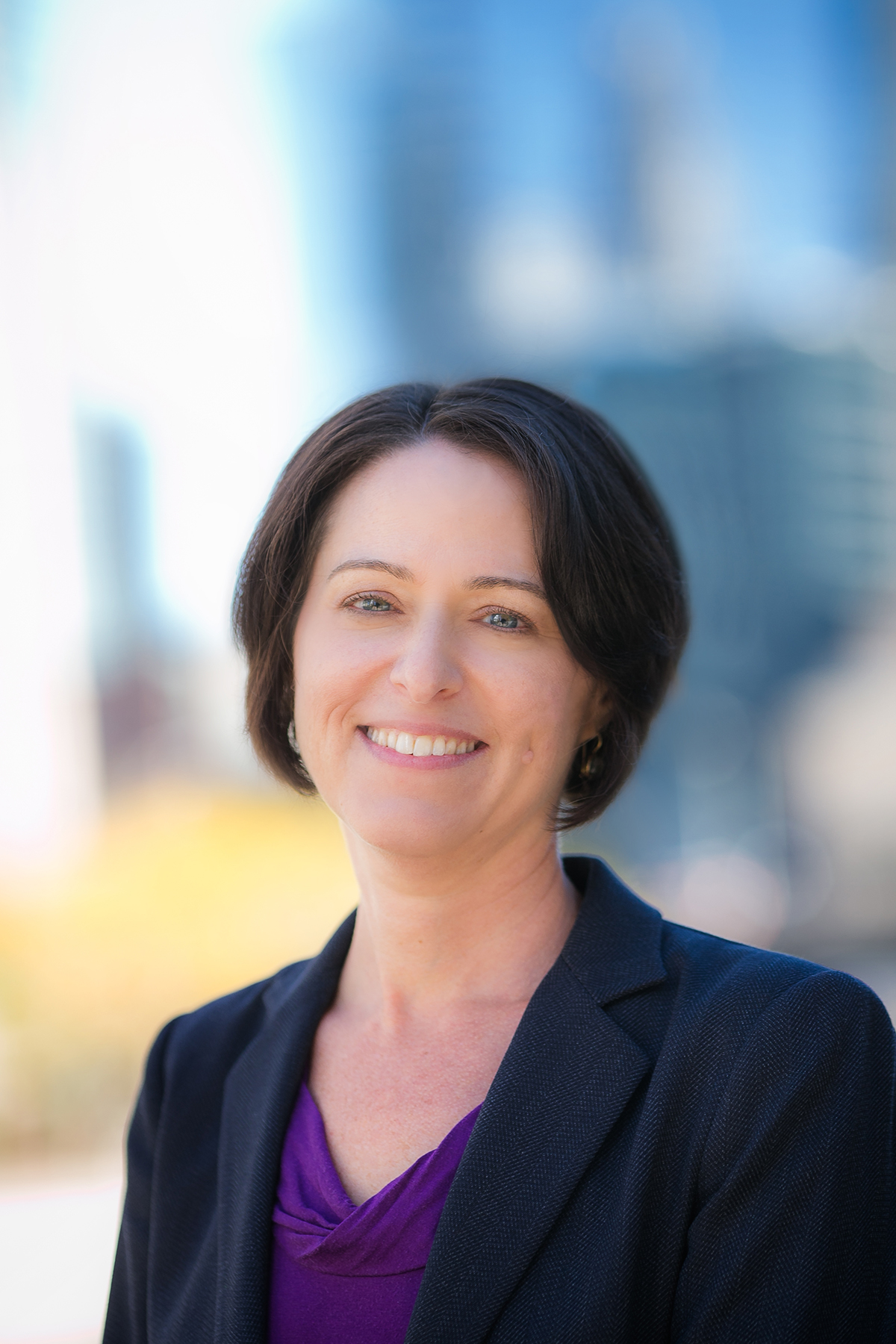Assumptions about the financial practices and well-being of one’s friends, neighbors, coworkers and even one’s employees can be significantly off the mark. Ditto for one’s community. People may think that an individual or city is prospering, when in fact they are just getting by or are at the brink.
A decade after the start of the global financial crisis, who’s looking out for Americans’ financial well-being?
Perhaps the best answer to this question is Jennifer Tescher — founder, CEO and president of the Center for Financial Services Innovation — and her CFSI team.
At 3 p.m. Saturday in the Hall of Philosophy, Tescher will disclose “The Real Financial Lives of Americans in an Era of Disruption, Dislocation, and Uncertainty.” Her talk will conclude the Chautauqua Women’s Club’s 2017 Contemporary Issues Forum speaker series.
Since 2004, Tescher has been working with the financial services and technology industries to increase and improve underserved consumers’ access to high-quality financial products and services. The national press — including NPR’s Marketplace, The New York Times and The Washington Post — have often turned to her as an authority.
Tescher didn’t set out to be a catalyst for change in the financial services industry. Because she wanted to be a reporter, she earned a combined undergraduate and master’s degree in journalism at Northwestern University.

“I’ve always had a strong sense of justice, and thought (that) being a newspaper reporter was a really great way to speak truth to power and to fight for justice,” Tescher said. “And I had always been interested in poverty and inequality issues, and I had hoped to write about them as a reporter.”
For two years, Tescher worked for the Charlotte Observer in North Carolina and lived in Statesville, the county she was covering. With a population of 20,000 people, it was the smallest place she’d ever lived, having grown up in Miami.
She said she decided to earn a public policy degree to gain expertise in poverty and inequality and learn additional quantitative skills, and then return to journalism. Soon after she began her public policy master’s at the University of Chicago, however, she had second thoughts.
“I cared more about the issues than I did about the writing,” Tescher said. “In the early to mid-1990s, newspapers really didn’t care much about the issues of poverty and inequality. There wasn’t as much coverage of it. It was a very go-go time in this country.”
Ultimately, she decided she wanted to do something about these issues, not just write about them.
Although Tescher had not considered doing anything in banking and finance, during her final quarter of grad school, she interned in the consulting arm of ShoreBank Corporation, a regulated bank holding company with branches in Chicago, Detroit and Cleveland.
During the 1990s, ShoreBank integrated environmental conservation into its mission and was instrumental in developing the “triple bottom line” accounting framework that equally prioritizes people, ecological impacts and profits. Tescher said that it was not only the first and largest community development bank in the country, but also a national and international model.
According to Tescher, ShoreBank “led to the creation of a cottage industry of banks and credit unions and loan funds that were really focused on providing … products and services that were actually aimed at helping people who have less access, but who weren’t necessarily a bigger risk.”
Taken with the ideas that the private sector could be a “force for good in people’s lives” and a “powerful way to scale intractable challenges,” upon graduation, Tescher began working full-time at ShoreBank, initially for its president. She said she was stimulated by the intellectual challenge of working for a for-profit business “that was trying to do well and do good simultaneously, not as a trade-off between one and the other.”
For about eight years, as she worked in a series of positions within ShoreBank’s larger corporate structure, Tescher learned about banking products and services, including how one gains access to them and manages money effectively — “all the precursors to being in a position to borrow money in the first place.”
Then she returned to the company’s consulting division to develop a business centered on preparing people to be good borrowers. She said that until then, ShoreBank’s consulting work was largely focused on replicating its business model in other cities or organizations, and helping community development lenders improve their lending practices.
Tescher said that in the early 2000s, the Ford Foundation, a longtime ShoreBank shareholder, commissioned her to research the promise of the internet for reaching hard-to-serve consumers. While they knew an opportunity existed, they did not know what was really going on and how to develop a funding strategy.
“I came back and said, ‘You should create a center and it should look like this and do these things,’ ” Tescher said. “And they said, ‘Great; that’s a great idea, and here’s a check. You should go do that.’ So I launched CFSI. … When we first started, we were really founded to answer the question, ‘How can technological change in financial services benefit those who need it most?’ ”
CFSI became a separate 501(c)(3) organization in 2004, though it maintained its affiliation with ShoreBank until the latter failed during the 2007 financial crisis.
Prior to this crisis, Tescher said that CFSI spotlighted the issue of financial access for those who are unbanked or underbanked — about a quarter of the population in the United States — and encouraged banks to see the business opportunity in giving these people financial products and services that would be useful to them.
“These people were spending money somewhere; just not with (them),” Tescher said. “And technology would provide new ways to reach them cost-effectively.”
In 2007, Apple introduced the iPhone, which she said “essentially made financial access ubiquitous.”
“And then we had the financial crisis,” Tescher said. “And that made it clear that this wasn’t about whether or not you had a bank account. But millions of Americans — the majority, frankly — were struggling financially, and it had just been masked by the over-indebtedness that in part contributed to the financial crisis. So, we didn’t see it. We all knew that we were a society of borrowers, not savers. But we didn’t understand just how deeply in debt we were and what that was masking.”
Even in the present day, people may appear to have the “trappings of a basic middle-class existence, but they are intensely financially fragile,” Teschler said. “This isn’t like a niche problem. This is most people. And it’s not just about poor people.”
According to Tescher, 57 percent of Americans are financially unhealthy. She defines “financial health” as “having a strong day-to-day financial system that enables you to build resilience and pursue opportunity — to manage the downside, or avoid it, and take advantage of the upside.”
Given the magnitude of this financial instability, she said that CFSI reframed its focus four years ago. Its mission now is to improve financial health in America by working with financial services and technology companies to help them build businesses that are “predicated on their customers’ financial success.”
Saturday afternoon, Tescher will describe some of the many ways in which CFSI has been at the forefront of turning the U.S. financial services industry on its head and initiating successful efforts to improve the financial health and well-being of the majority of Americans.




